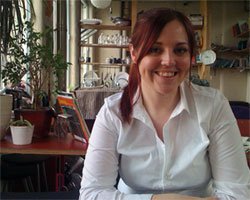There is an accepted stigma around family estrangement, and forgiving and healing is often promoted when we talk about family relationships. However, a new charity has arrived to challenge this principle.
Stand Alone offers innovative support services to adults and students that are estranged from their family. By connecting people through meet-up groups and talking openly about estrangement, the charity hopes estranged adults may lead less isolated and less vulnerable lives. There are always times when it’s healthier and safer for people to cut contact or step away from a dysfunctional family situation, says Stand Alone. The taboos around family estrangement are said to account for the absence of UK statistics. However, in 2012, over 7,000 students alone applied for estranged independent status.
Lorna from Kent is 24 years old and one of the first people to attended a pilot Stand Alone meet-up group in London. Lorna had a psychologically turbulent upbringing that became unviable when she turned eighteen. ‘I couldn’t take it anymore,’ Lorna states. ‘I knew I had to get away from the situation.’
‘I’m trying to make my own way in life, but it’s hard and people often imply that I’m to blame for what has happened. But meeting people in my position made me feel hopeful. I’ve kept in touch with a few people and it has helped me to know that I’m not in this situation alone.’
Estranged Students are also set to receive support from Stand Alone with evidencing estrangement in the Student Finance/NHS bursary system. Following the NUS’s 2008 report into problems with the verification of estrangement, there have been improvements in guidelines. However, many students are reporting issues.
Willow Howard is a 22 year-old nursing student from London. She has been estranged from her family for three years.
‘My battle with student finance and NHS bursaries has been demoralising and they have made me doubt my own circumstances at times. I have been constantly vilified and patronised.’
Willow was expected to recount the circumstances that lead to her estrangement to several different operators. Her evidence was often either lost or deemed unsuitable by the varied personnel that dealt with her case. These are not the only issues. Stand Alone learned that evidence submitted successfully for one academic year was then deemed unsuitable to verify some students’ estrangement for the next academic year.
Stand Alone is working to certificate estrangement for young people, thus reducing the emotional harm within these application processes. The charity is currently in talks with both the NUS and Student Finance as to how certification from the charity can be used. Stand Alone stated: ‘There is no reason these students should be judged poorly or treated as suspect for making what is most often a difficult but ultimately brave choice. The NUS classify these students as vulnerable and yet most experience horrific inconsistency in the system. This reality must change and it must change quickly.’
In Stand Alone’s first six months of operation, over 300 adults in the UK, aged between 18-62, have contacted the charity to ask for support. Stand Alone are encouraging estranged adults to register with the charity.
Notes for Editors:
Visit www.standalone.org.uk for more details.
Contact Becca at contact@standalone.org.uk for further press enquires, images and interviews.
Case studies above are available for interview and have given permission to be photographed and featured. RTR can be discussed.
Stand Alone is self-funded venture and is looking for funding for its next year of operation. If you feel you can help please visit our Crowdfunder campaign at www.crowdfunder.co.uk/stand-alone

 ‘I’m trying to make my own way in life, but it’s hard and people often imply that I’m to blame for what has happened. But meeting people in my position made me feel hopeful. I’ve kept in touch with a few people and it has helped me to know that I’m not in this situation alone.’
‘I’m trying to make my own way in life, but it’s hard and people often imply that I’m to blame for what has happened. But meeting people in my position made me feel hopeful. I’ve kept in touch with a few people and it has helped me to know that I’m not in this situation alone.’ ‘My battle with student finance and NHS bursaries has been demoralising and they have made me doubt my own circumstances at times. I have been constantly vilified and patronised.’
‘My battle with student finance and NHS bursaries has been demoralising and they have made me doubt my own circumstances at times. I have been constantly vilified and patronised.’